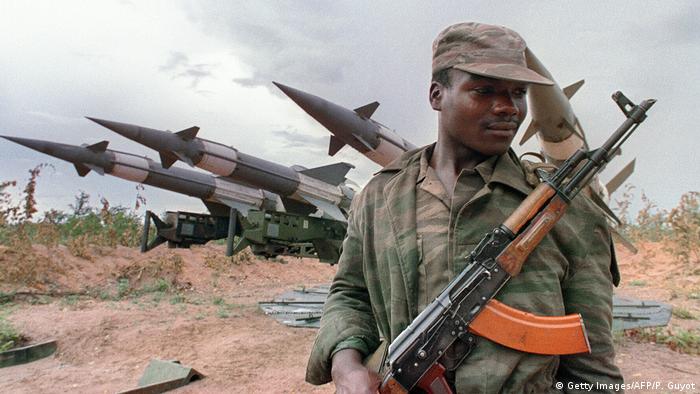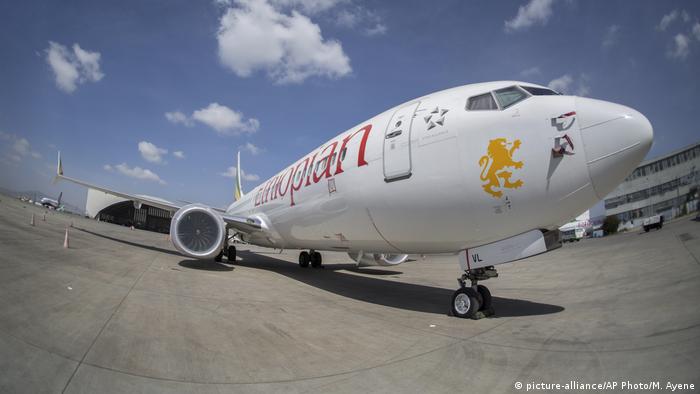14 initiatives of the Agenda 2063 is intended to pave Africa’s road to the future. At the summit this week the free trade agreement is in the focus of the African Union. However, other plans remain on track.

Africa should continue to grow together – at least that is the Plan of the African Union (AU) meeting this week in Niamey, Niger, to the summit. On the table the Agenda 2063, Africa’s master plan is to accelerate development and economic growth. 14 initiatives in the areas of infrastructure, education, science, technology, culture and peacekeeping for the Motto include: – “The Africa we want”. But not everything is currently running as hoped.
For example, Initiative number five – a total ceasefire in Africa. This was the aim of the AU for 2020 – next year. Dessu Meressa by the Institute for Security Studies in Addis Ababa does not see the critical: “It is going as planned. We are almost at 2020, and the weapons are still there. But a ceasefire in Africa is part of all other plans in the Agenda.” It is therefore difficult to single successes in the Agenda 2063 to identify. The Failure of an Initiative would automatically have an impact on the Success of others.
Also, the Togolese political scientist Désiré Assogbavi stresses in the DW-Interview: “weapons of peace and security are the basis for development. If a majority of the continent is in flames, is the successful implementation of the Agenda is difficult.”

Yet Africa is far from peace on the continent
No free trade agreement without free movement?
Nevertheless, the question arises: is the African Union with their plans? For example, the African Continental free trade area (AfCFTA), which is intended to boost intra-African trade and the economic Position of the continent on the world market would be. The agreement entered into force on 30. May 2019 for the 24 countries which have ratified the Protocol, in force. All African countries should join, could AfCFTA be the largest free trade zone in the world, with a total economic output of over three trillion dollars and more than one and a half billion consumers. But still AfCFTA exists mainly on paper.
“At this Meeting, it is all about that AfCFTA enters into force,” says Désiré Assogbavi about the AU summit in Niamey. “It is a big step in the Business Plan of the AU, and can change, if fully implemented, the fate of the continent.” And actually, the plans could get on the weekend a boost to the front. The reason: After long hesitation, the government of Africa’s largest economy Nigeria, has announced that the free trade agreement to join.
Other initiatives could back, therefore, at the Meeting in the Background. “I don’t think about the state of the African passenger traffic will continue to be discussed,” says Dessu Meressa. This Initiative had also a great influence on the implementation of the free trade zone. “If this is supposed to be free trade agreements successfully, people must be able to travel from place to place, from country to country through Africa.”

A common passport to allow Africans the freedom of movement
Colonial heritage in aviation
The Initiative for the movement is ambitious: All of the Africans will in future travel to the continent freely, work and live. This is also an African passport is to be introduced. However, the Meressa keep up to date for secondary. “It would be enough to be able to with a national passport is easier to travel without a visa or other requirements.” At a special summit in March 2018 in Kigali, Rwanda, 27 of the 55 member States of the AU have signed the Protocol on freedom of movement. But since then, it has become quiet. The mutual distrust of the nation-States seems to be currently.
Also, the initiatives for the Expansion of intra-African infrastructure is progressing only slowly. Better roads were essential to the trade and movement of people between African countries. Example of air transport: “Many of the current routes are always running powers over former colonial. To travel through Africa, I fly often over Europe,” explains the political scientist Assogbavi. Therefore, it is important to promote African airlines better.
Plans for it are in the Agenda 2063 – and even an agreement. Already at the beginning of 2018, 23 African countries had signed a contract, by the airlines of the member countries in the future free access to the airports of other member countries should have. But here, too, nothing has happened, complains Assogbavi.

The AU has a common African air space to the target
44 Years – 14 Plans
It looks similar to the theme of rail transport. It is planned to a high-speed network, the Railways, the national Railways of the 54 African countries and all the main aims to connect cities with each other. At least 12,000 kilometers of new lines should be built. That would be implemented in the near future, does not believe Dessu Meressa. “The member States would need to repair their infrastructure nationally,” he says.
Désiré Assogbavis balance is sober: “so Far, I see a development not only in the AfCFTA. It is not enough, when countries ratify the proposals and then fail to implement.” The lofty ambitions of the African Union, he keeps a part of the problem. “Projects such as the purse Seine must be financed. Such an Investment does not happen overnight.”
14 initiatives for which 44 years remain. Enough Time? “I don’t think that all the plans can be carried out to 2063,” says Dessu Meressa. “To a certain degree, Yes, but not 100 percent.” Désiré Assogbavi, however, is more optimistic: “It is a goal, and other continents have managed it, too.” For him, the success of the Agenda 2063 is a question of Leadership, of leadership. “If we have strong governments, then we can put the plans into action. But if we get the government’s problems are not solved, we have at the moment, then the Agenda will remain 2063 only written on paper.”